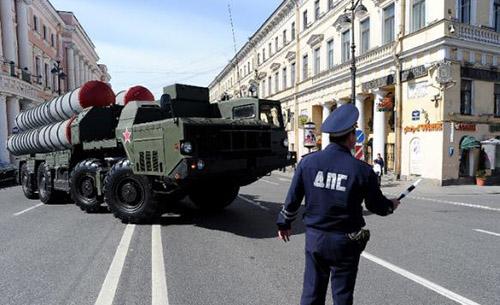Russia breaks deadlock over sale of S-300 missile system to Iran
Russia is expecting to start deliveries of a sophisticated surface-to-air missile system to Iran by the end of 2016, ending a long legal dispute that threatened to undermine Moscow’s ambitions to deepen ties with Tehran.
The decision by Moscow to press ahead with the sale will be unwelcome news for Israel, which has long worried about enhancements of Iran’s anti-air capabilities and criticised Russian president Vladimir Putin’s decision in April to revive plans for the sale.
Israel considers Iran its foremost regional enemy and a sponsor of proxy wars in the Middle East. In 2013, Israeli prime minister Benjamin Netanyahu travelled to Moscow to urge President Putin to stop the sale. Gulf countries are also worried about the growing military capabilities of Iran in the wake of its nuclear and sanctions-lifting agreement sealed with six foreign powers in July.
Israel worries that Iran’s acquisition of the S-300 system, which is similar in its capability to the US-made Patriot missiles, would hamper its air force’s ability to operate over Iran or its ally Syria.
Mr Netanyahu was on an official visit to Washington on Monday, and his office had no immediate reaction to news of the sale.
But Sergei Chemezov, chief executive of Rostec, Russia’s largest defence contractor and chairman of the country’s export agency Rosoboronexport, said that the deal reached earlier this year between world powers and Tehran to suspend sanctions in return for limits on Iran’s nuclear programme had opened opportunities for doing business with the country.
“Due to the changed situation today we are developing contacts and co-operation with Iran,” he said. However, he insisted that the company would not breach the sanctions still in place.
“We sell only to countries that are allowed by the UN Security Council. Those countries against whom the UN has issued sanctions, we do not sell to those countries,” he said in an interview with the Financial Times.
Moscow and Tehran initially agreed on S-300 systems deal in 2007, during Mr Putin’s second presidential term. Moscow’s decision to block any deliveries of that system to Tehran came in 2010 as part of efforts to “reset” its troubled relationship with the US when Dmitry Medvedev, now prime minister, switched with Mr Putin in the presidential job for one term. Iran reacted with a $4bn legal complaint against Rosoboronexport in the International Court of Arbitration in Geneva.
(Financial Times)
Caption: A Russian army S-300 anti-aircraft missile system launcher
Photo: Yahoo!
Related Posts

